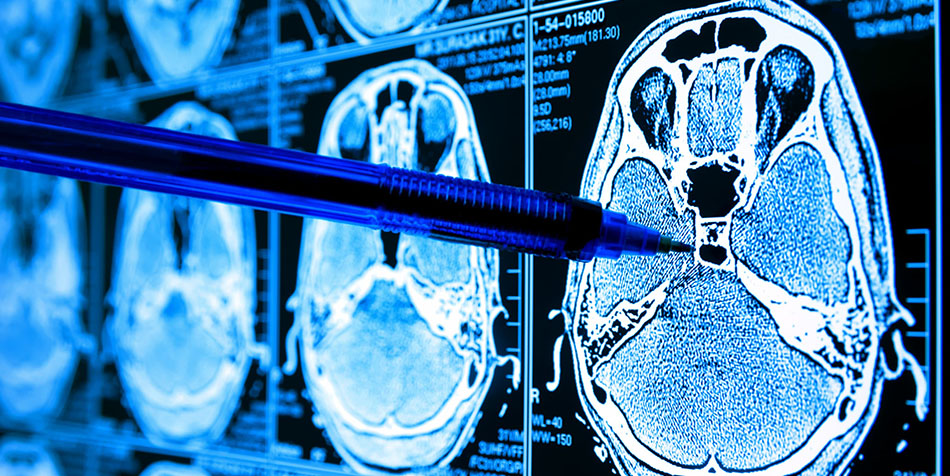
As artificial intelligence continues to evolve its impact on cancer is likely to grow exponentially.
Cancer is one of the most complex diseases to diagnose and treat. Doctors and patients have traditionally relied on methods such as biopsies, imaging scans and laboratory testing. While advancements in technology have significantly improved cancer survival rates, early detection remains crucial for successful treatment.
Doctors are increasingly using artificial intelligence for cancer therapy, from detection to treatment planning. New AI models are emerging that are capable of detecting patterns and making connections that may not be easily recognizable to humans.
As the technology continues to evolve, AI has the potential to revolutionize oncology and serve as a powerful ally in the fight against cancer. Here are the key details to know.
How is AI being used in cancer therapy?
The traditional methods of diagnosing cancer — reading pathology reports and examining biopsies — are time-consuming processes prone to human error. AI can analyze imaging scans with greater speed and accuracy.
In mammography, AI image enhancement can improve the quality of breast images and make it easier for radiologists to view anatomical structures. It can also estimate the size and shape of a tumor, and identify characteristics that may not be immediately obvious to a human.
Additionally, AI can be used in place of traditional methods for diagnosing cancer, either to confirm or deny a diagnosis. For example, a woman with a lump in her thyroid underwent a biopsy after her ultrasound showed concerning results. She sought a second opinion from a radiologist who performs thyroid ultrasounds using AI to get a more detailed image. The second ultrasound showed that the tissue from the lump was not cancerous. Had the woman gone to the second radiologist first, she could have avoided the biopsy and gotten the same result.
AI models are effective at detecting subtle patterns in imaging exams that may be missed by the human eye. Because they are trained on large amounts of data, they have a wider knowledge database from which to draw. AI imaging models can pick up on properties within a scan that a human simply cannot detect, which helps to enable early detection and treatment.
Advancing treatment planning with AI
AI can also aid in cancer treatment planning. The current approach to cancer treatment is largely trial and error. However, no two patients are alike, so many don't respond to treatment the same way. Machine learning algorithms can analyze previous cases and predict how a patient will respond to a treatment based on their genomic data, lifestyle factors and medical history.
Researchers at the National Institutes of Health (NIH) developed an AI tool that uses data from the individual cells within a tumor to predict whether a patient's cancer will respond to a specific drug. Doctors currently use bulk sequencing to analyze tumors, meaning they look at the average genetic makeup of all of the cells in a tumor sample.
But tumors contain different groups of cells (called clones) that may react differently to treatments. Single-cell RNA sequencing looks at individual cells and helps doctors identify which cells are likely to resist treatment, allowing them to adjust their approach accordingly. AI can be trained on bulk RNA sequencing data and then fine-tuned to incorporate single-cell RNA sequencing data, which can help determine how cancer cells will react to a targeted treatment or combination drugs.
Artificial intelligence can also accelerate cancer drug discovery. Researchers at the National Cancer Institute (NCI) are using AI to predict how immune cells (called T cells) respond to tumors. NCI researchers have developed predictive AI models that use deep learning to provide a map of common drug response pathways.
The future of AI in cancer care
As the technology continues to evolve, AI's impact on cancer is likely to grow exponentially. Advanced tools can further support early detection by analyzing imaging data and identifying early signs of cancer that may be missed by human observation.
Eventually, AI may be able to move from detection and treatment to prevention by predicting a person's risk for developing cancer in the future. One such tool was able to successfully identify people at the highest risk for pancreatic cancer — up to three years before an official diagnosis — using just the patients' medical records.
Using artificial intelligence for cancer care can help expand personalized medicine and the ability to tailor treatment plans based on a patient's unique profile. Customized care can improve outcomes and lead to fewer side effects. AI can also help doctors anticipate cancer progression, enable earlier and more accurate diagnoses and improve overall patient care.
While AI will never fully replace doctors, it will continue to play a pivotal role in cancer diagnosis and treatment.
$webqFacilityNumber
Need a Physician?